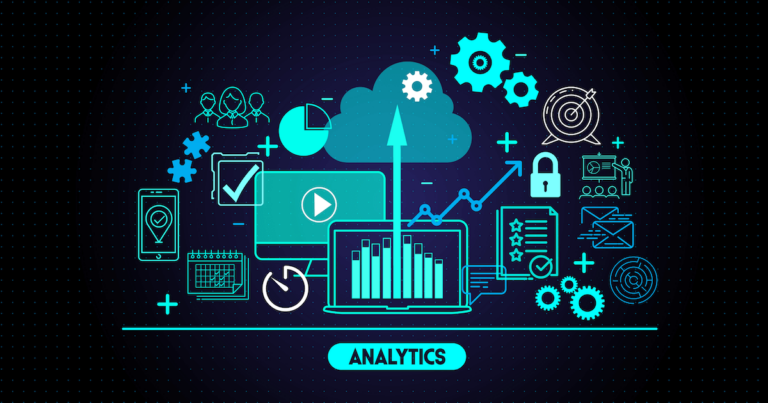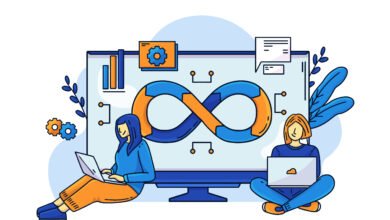
Introduction:
In the era of big data, the demand for skilled data analytics professionals has skyrocketed. As organizations strive to make informed decisions based on data-driven insights, the need for individuals trained in data analytics has become critical. However, the field is vast, and there are various approaches to data analytics training. In this article, we will explore different methods and strategies employed in data analytics training to equip individuals with the necessary skills for this dynamic and evolving field.
1. Traditional Academic Programs:
One of the most conventional routes to acquire data analytics skills is through traditional academic programs. Universities and colleges offer undergraduate and graduate degrees in fields such as statistics, computer science, and information technology, providing a comprehensive education in foundational concepts and techniques. These programs often cover statistical analysis, programming languages like Python or R, and data visualization tools. However, the downside is that these programs can be time-consuming and may not always keep up with the rapidly changing landscape of data analytics tools and technologies.
To address this limitation, individuals seeking to enhance their data analytics skills may consider alternative learning paths. Online courses, workshops, and bootcamps offer more flexible and focused training, allowing learners to acquire practical skills quickly and stay current with the latest advancements in the field. These alternative approaches often emphasize hands-on experience and real-world applications, providing a more agile and responsive learning experience compared to traditional academic programs.
2. Online Learning Platforms:
Education has undergone a revolution with the rise of online learning platforms, which have increased accessibility and flexibility. Platforms like Coursera, Udacity, and edX offer a plethora of data analytics courses and specializations. These courses often provide hands-on experience, allowing learners to work on real-world projects. Online learning is advantageous for individuals who want to learn at their own pace, and many of these platforms offer certifications that are recognized by industry professionals. However, the effectiveness of online learning relies heavily on the learner’s self-discipline and motivation.
3. Bootcamps and Intensive Training Programs:
For those seeking a more immersive and focused learning experience, data analytics bootcamps and intensive training programs have gained popularity. These programs are designed to provide a rapid and practical education, typically lasting a few weeks to a few months. They often cover a specific set of skills that are in high demand in the industry, such as machine learning or data engineering. Bootcamps are ideal for individuals looking to transition quickly into the field or upskill in a particular area. However, they may lack the depth of theoretical knowledge compared to traditional academic programs.
4. In-House Training and Corporate Programs:
As organizations increasingly recognize the importance of data-driven decision-making, many have started investing in in-house training programs. Companies provide their employees with opportunities to learn data analytics skills relevant to their roles. These programs can be customized to align with the organization’s specific needs and industry requirements. In-house training is advantageous for employees as it directly relates to their job responsibilities, but it may lack the breadth of knowledge compared to formal academic programs.
5. Continuous Learning and Professional Development:
Data analytics is a rapidly evolving field, with new tools and techniques emerging regularly. Continuous learning and professional development are crucial for staying current in this dynamic landscape. Professionals in the field often engage in self-directed learning, attending workshops, webinars, and conferences to stay abreast of the latest trends and advancements. This approach allows individuals to adapt to changes in the industry and deepen their expertise in specific areas.
Conclusion:
Choosing the right approach to Best Data Analytics Training in Navi Mumbai, Vadodara, Agra, Thane, Mumbai, Delhi, Noida & all cities in India. Depends on various factors, including individual learning preferences, career goals, and time constraints. Traditional academic programs offer a solid foundation, online platforms provide flexibility, bootcamps offer quick immersion, in-house training caters to specific organizational needs, and continuous learning ensures professionals stay ahead in a rapidly evolving field. Ultimately, a combination of these approaches or a personalized learning journey may be the key to success in the exciting and ever-growing field of data analytics training in Navi Mumbai.
while traditional academic programs offer a solid foundation in data analytics, the dynamic nature of the field necessitates continuous learning. Supplementing formal education with online courses, workshops, or other flexible learning options can be an effective strategy to stay abreast of the latest developments in data analytics and ensure a well-rounded skill set.
Read More Details: Exploring Advanced Techniques in Data Analytics Training



